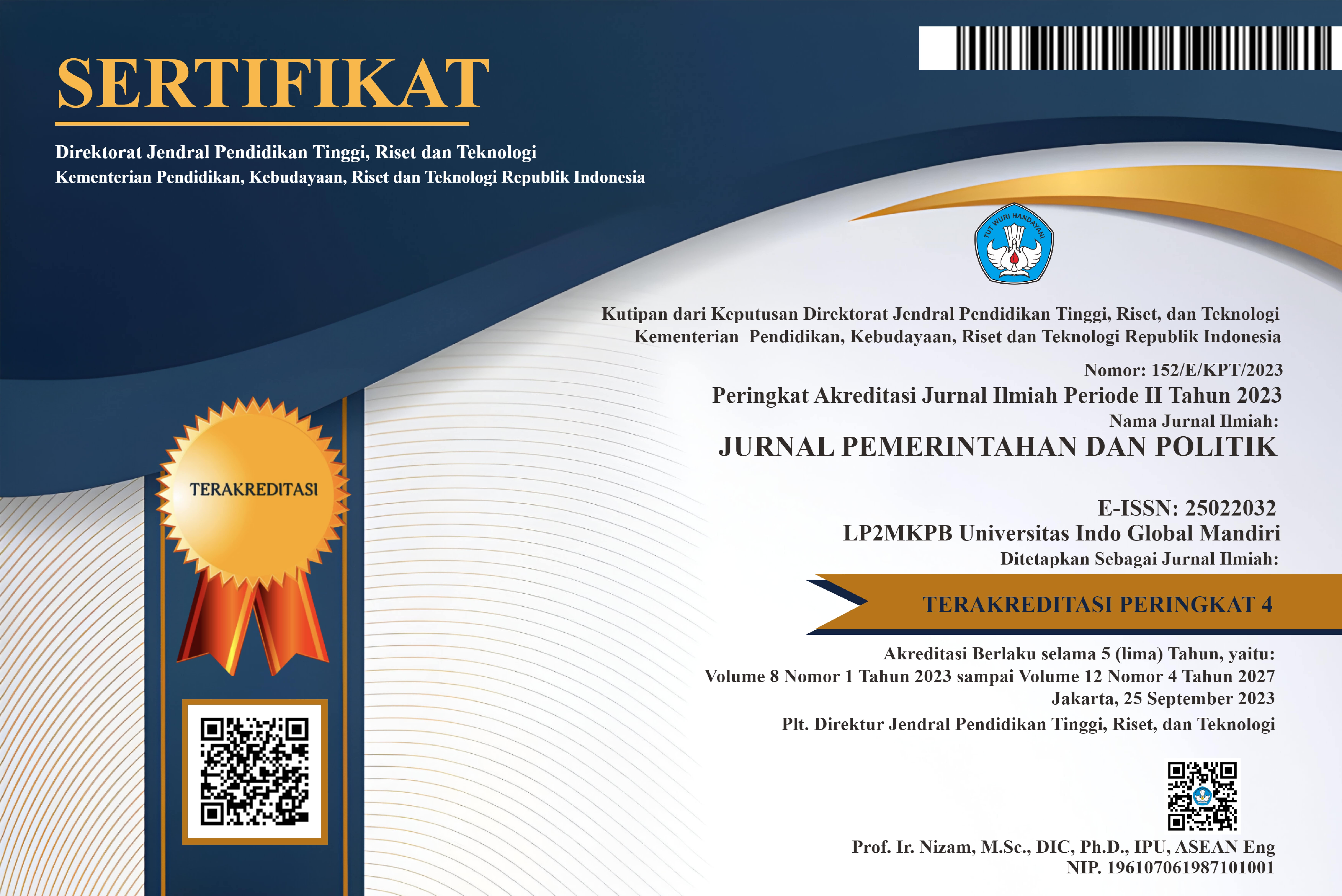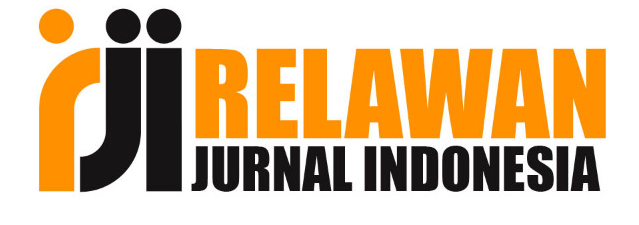SISTEM PEMERINTAHAN SOFT-AUTORITHARIAN SINGAPURA DI TENGAH ARUS DEMOKRASI
DOI:
https://doi.org/10.36982/jpg.v1i2.699Abstract
The aim of this paper is to analyze about soft-autoritharian model of Singapore system politics. We show that even modern state like Singapore, using market economy system doesn’t effect to democratize in government politics. Although middle class growing so fast, but didn’t make them to push government adopting democracy system politics. In consequence more educated people in Singapore, didn’t lead to democratization in politics. We then check this because confucianism become the prior of the political culture in Singapore. Confucianism became the soul of government politics of Singapore. We also show that people of Singapore didn’t care about democracy in politics because of the government provides public facility and entertainment really outstanding.     Â
Keyword : Democracy, Singapore, Soft-Autoritharian.References
Haggard, Stephan. 1990, Pathways From Periphery: The Politics of Growth in the Newly Industrializing Countries, Ithaca: Cornell University Press
Huntington, P. Samuel. 2000, Gelombang Demokratisasi Ketiga, Jakarta: Grafiti
Linz, J. Juan. and Alfred Stepan, 1996, Problems of Democratic Transition and Consolidation: Southern Europe, South America, and Post-Communist Europe, Baltimore: Johns Hopkins University Press.
Mansfield, Edward D and Richard Sisson (ed.,), 2000,Political Science and The Public Interest, Columbus: Ohio State University Press.
Pye, W. Lucian. The Political Development
Jay Ulfeder, “Contentious Collective Action and the Breakdown of Authoritarian Regimes,†International Political Science Review (2005), Vol 26, No. 3, hlm. 315-319, saya akses melalui web http://www.jstor.org/stable/30039035 diakses pada: 04/05/2011 06:20
Bae-Gyoon Park, “Where Do Tigers Sleep at Night? The State's Role in Housing Policy in South Korea and Singaporeâ€, Economic Geography, Vol. 74, No. 3 (Jul., 1998)
M. Shamsul Haque, “Governance and Bureaucracy in Singapore: Contemporary Reforms and Implicationsâ€, International Political Science Review (2004), Vol 25, No. 2
Garry Rodan, “Singapore in 2004: Long-Awaited Leadership Transitionâ€, Asian Survey, Vol. XLV, No. 1, Januari 2005
Sarosh Kuruvilla, “Linkages Between Industrialization Strategies and Industrial Relations/Human Resource Policies: Singapore, Malaysia, The Philippines, and Indiaâ€, Industrial and Labor Relations Review, Vol. 49, No. 4 (July 1996).
Denny Roy, “Singapore, China, and The "Soft Authoritarian" Challengeâ€, Asian Survey, Vol. XXXIV, No. 3, Maret, 1999
Francis Fukuyama, “Asia Soft-Authoritarian Alternativeâ€, New Perspective Quarterly, Volume 9. No.2
Marc Morje Howard & Phillip G. Roessler, “Liberalizing Electoral Outcomes in Competitive Authoritarian Regimesâ€, American Journal of Political Science, Vol. 50, No. 2, April 2006
Pranab Bardhan, “Symposium on the State and Economic Development.†Journal of Economics Perspectives, Summer 1990
Adam Prezowski & Fernando Limongi, “Political Regimes and Economic Growthâ€, Journal of Economic Perspectives, Volume 7, No.3, Summer 1993
Barbara Geddes, "Authoritarian Breakdown: Empirical Test of a Game-Theoretic Argument." Paper presented at the annual meeting of the American Political Science Association, Atlanta, GA. 1999
Ronald Dore, “Scholars and Preachers.†IDS Bulletin, Sussex, United Kingdom: International Development Studies, Juni 1978
Do We Want S'pore or Some Other Place?" Straits Times, 28 Mei 1988
Media's Role 'To Inform People of Govt Policies,"' Straits Times (overseas edition), 16 Juni 1990
Cao Yunhua, "Singapore As a Role Model," Sunday Times, 12 April, 1992
“Chinese Culture Outside China Changing with The Generationsâ€, Sunday Times, 11 Agustus 1991








